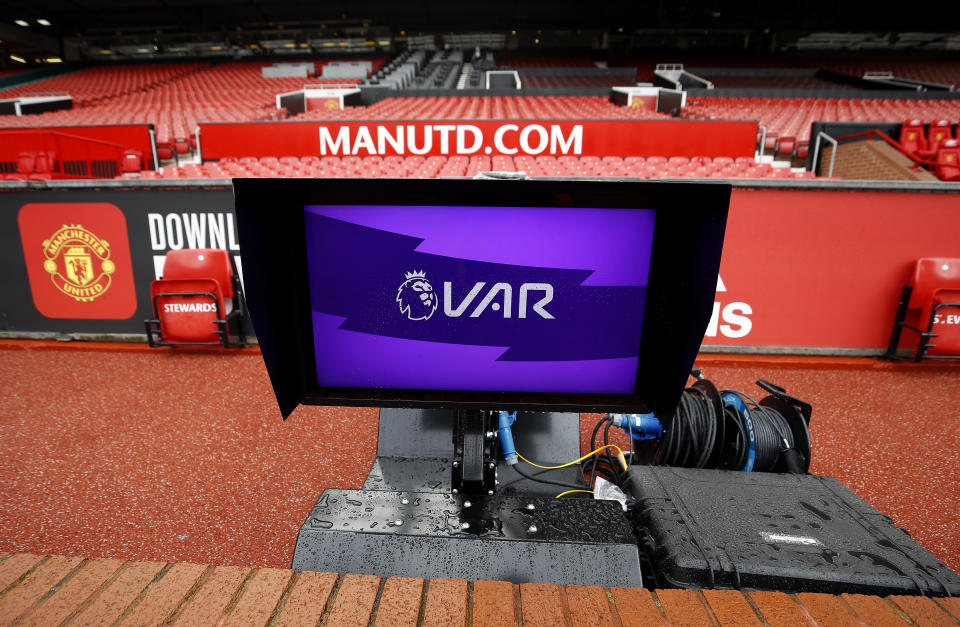VAR could take '10 years to perfect' after Premier League drama
Football’s video assistant referee (VAR) system could take 10 years to perfect, according to the body that introduced the new laws.
The International Football Association Body (IFAB) secretary Lukas Brud warned the system will require patience after a turbulent introduction to English football.
The opening Premier League weekend saw several instances where VAR overruled the on-field referee.
On the second weekend, reigning champions Manchester City were denied a last-gasp win against Tottenham after a handball was discovered in the lead-up to their late goal.
And amid the drama and controversy the system has caused, Brud stated only time will help iron out the initial flaws of the system.
“They have taken their time to use it and wanted to see how it works,” Brud said of the Premier League’s decision to introduce VAR.
“The VAR concept is still at the beginning. We talked to other sports and everyone told us this is a 10-year project until people really understand how it works.”
In the opening weekend alone, noise issues with the system delayed the restart of Liverpool’s 4-1 demolition of Norwich.

The following day, Raheem Sterling was ruled marginally offside, as one goal was disallowed before another was granted by a similar margin.
This drew criticism from a number of quarters including Former England and Liverpool star Danny Murphy, who suggested the VAR has a negative impact on the game.
"Do we really want to see goals disallowed for an offside that's an armpit ahead of another armpit by four millimetres?" Murphy told TalkSPORT.
"He might be offside by four millimetres by the letter of the law. But it's an entertainment business, isn't it?
“if you gave me the choice I'd knock VAR on the head"
But Brud reiterated that VAR isn’t there to ruin the and its introduction has been managed well: “The Premier League was observing the development of VAR for a long time because it is one of - if not the - most important league competition in the world and the most viewed competition in the world.
“They didn’t want to be part of the experimental phase and wanted to avoid being a guinea pig.”
According to a study by VAR From Perfect, accuracy of decisions were improved by 5% while one minute was lost per decision between 2016 and 18.
And while the Premier League has taken steps to address this - removing the necessity of the on-field referee watching a monitor - the IFAB official reckons the men in the middle support the move.
“Referees report back to us that this is something they have always wanted, for various reasons,” he said.
“Every single referee has said to us ‘for us, it’s great. We don’t have to be afraid of killing our careers’.
“They will have someone to fall back on and they love it.”

How does VAR work in the Premier League?
Match referees in England will be able to review decisions in four ‘game-changing’ instances.
That includes where goals, penalty kicks and red cards are awarded - as well as cases of mistaken identity.
VAR can also alert the referee to an off-the-ball incident which he may have missed, which could result in a dismissal.
There are some differences to how it will work in the Premier League - compared to UEFA competitions and the men’s 2018 World Cup.
One of those major differences is that referees will not have to view the pitch-side monitor for a replay; those in the VAR studio will make the call and the referee will generally accept it.
That monitor can, though, be used where an off-the-ball incident is brought to his attention.
Featured from our writers


